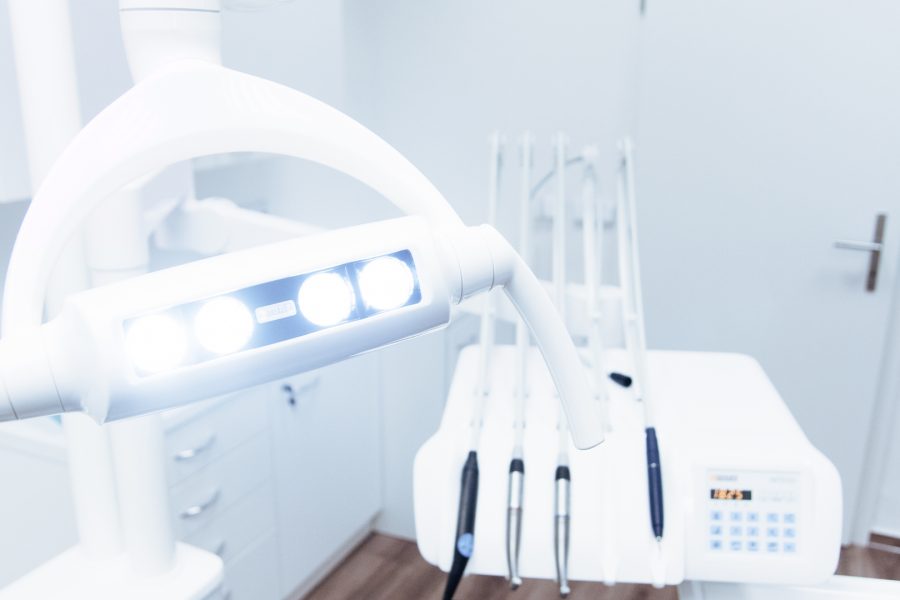For decades, fluoride has been held in high regard by the dental community as an important mineral that is absorbed into and strengthens tooth enamel, thereby helping to prevent decay of tooth structures. In nearly every U.S. community, public drinking supplies are supplemented with sodium fluoride because the practice is acknowledged as safe and effective in fighting cavities. Some private wells may contain naturally fluoridated water. What Is Fluoride? Fluoride is a compound of the element fluorine, which can found throughout nature in water, soil, air and food. By adding fluoride into our drinking water, it can be absorbed easily […]
Both natural teeth and teeth with restorations survive best in an oral environment that is clean and where the intake of harmful foods is controlled. Our program is designed to help prevent new cavities, preserve teeth that have been restored and manage periodontal disease. At the initial visit oral hygiene instructions are reviewed and are reinforced at subsequent recall visits. The following are helpful recommendations: Brush your teeth twice a day in a circular motion with a soft bristled toothbrush aimed at the gum. Floss every night in an up-and-down motion while keeping the floss in a U-shape and against […]
Plaque is an insidious substance—a colorless, sticky film—that blankets your teeth and creates an environment in which bacteria erode tooth enamel, cause gum irritation, infection in inner structures such as pulp and the roots, and in extreme cases, tooth loss. Some of the biggest culprits causing plaque are foods rich in sugar and carbohydrates, including soda beverages, some juices, candy and many kinds of pasta, breads and cereals. Plaque also can attack fillings and other restorations in your mouth, which can lead to more costly treatment down the road. Plaque is the main cause of tooth decay. It can also […]
Naturally occurring latex has been linked in recent years to allergic reactions in people who use such products as latex gloves. The proteins in the latex, which can also become airborne, can cause problems in vulnerable people such as breathing problems and contact dermatitis. Some allergic reactions, including anaphylactic shock, have been more severe. Many health experts have rightly attributed the dramatic increase of allergic reactions to latex in the health care community to the increased use of gloves and other personal protection equipment in light of the AIDS epidemic. Latex is a pervasive substance in many household items—from toys […]
Saliva is one of your body’s natural defenses against plaque because it acts to rinse your mouth of cavity-causing bacteria and other harmful materials. Dry mouth (also called Xerostomia) is a fairly common condition that is caused by diminished saliva production. People with medical conditions, such as an eating disorder or diabetes, are often plagued by dry mouth. Eating foods such as garlic, tobacco use, and some kinds of medications, including treatments such as cancer therapy can diminish the body’s production of saliva, leading to dry mouth. Other causes are related to aging (including rheumatoid arthritis), and compromised immune systems. […]
It has long been known that good nutrition and a well-balanced diet is one of the best defenses for your oral health. Providing your body with the right amounts of vitamins and minerals helps your teeth and gums—as well as your immune system—stay strong and ward off infection, decay and disease. Harmful acids and bacteria in your mouth are left behind from eating foods high in sugar and carbohydrates. These include carbonated beverages, some kinds of fruit juices, and many kinds of starch foods like pasta, bread and cereal. Children’s Nutrition and Teeth Good eating habits that begin in early […]
More and more people are avoiding the need for dentures as they grow older, going against the notion that false teeth are a normal part of growing older. In fact, there’s usually no reason for you NOT to keep your teeth your entire life, providing you maintain a healthy balanced diet and practice good oral hygiene. Another desirable side effect of good oral hygiene: avoiding more serious problems such as hypertension, cardiovascular disease, diabetes, and even stroke. Indeed, medical research is beginning to show that a healthy mouth equates to a healthy body and a longer life. Dexterity and Arthritis […]
Women have special needs when it comes to their oral health. That’s because the physical changes they undergo through life—menstruation, pregnancy and childbirth, breast-feeding and menopause—cause many changes in the body, some harmful to teeth and gums. Lesions and ulcers, dry sockets, as well as swollen gums, can sometimes occur during surges in a woman’s hormone levels. These periods would be a prime time to visit the dentist. Birth control pills have been shown to increase the risk of gingivitis, and hormone replacement therapy has been shown to cause bleeding and swollen gums. Gum disease can also present a higher […]
Infants Infants should be seen by our office after the first six months of age, and at least by the child’s first birthday. By this time, the baby’s first teeth, or primary teeth, are beginning to erupt and it is a critical time to spot any problems before they become big concerns. Conditions like gum irritation and thumb-sucking could create problems later on. Babies who suck their thumbs may be setting the stage for malformed teeth and bite relationships. Another problem that can be spotted early is a condition called “baby bottle tooth decay,” which is caused by sugary substances […]



